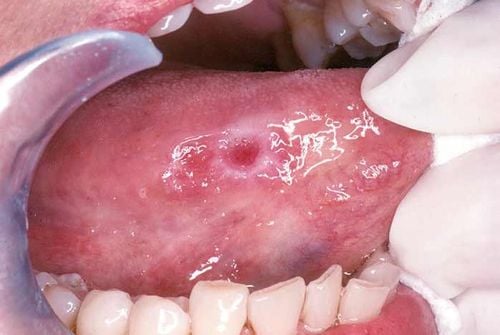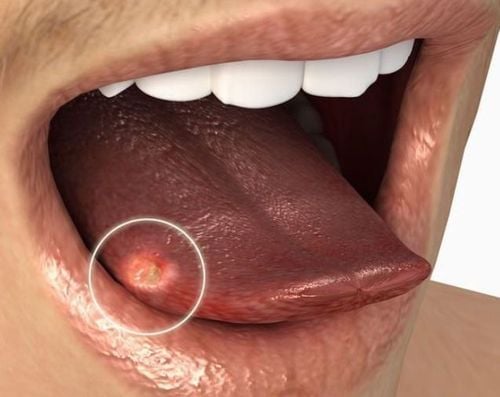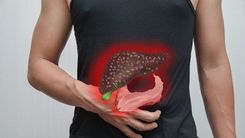The incidence of tongue cancer in Vietnam and globally is on the rise. It is one of the most common types of cancer in the mouth and surrounding areas. The signs in the early stages of the disease are often difficult to detect without careful attention, and by the time clear symptoms appear, the disease has usually reached a later stage.
1. Tongue Cancer
Tongue cancer is a malignant change in the epithelial layer covering the tongue or the connective tissue of the tongue. It is a condition commonly found in individuals over the age of 50. However, recent statistics show that the age of onset for this disease is getting younger.
2. What causes tongue cancer?
Most patients with tongue cancer cannot identify a specific cause. However, there are several risk factors, such as:
- Smoking: This is considered the primary factor that increases the risk of tongue cancer. Additionally, tobacco use is also a cause of many other types of cancer, such as lung cancer, throat cancer, and more.
- Alcohol and stimulant use: These are also among the main causes that increase the risk of tongue cancer. According to statistics, up to 80% of cases are individuals who have a habit of regularly consuming alcohol.
- Exposure to radiation: Frequent exposure to radiation increases the risk of cancer in various parts of the body, including the tongue.
- Genetics: People with close family members who have the disease are at a higher risk of developing the condition than others.
- Viral infections: Among the types of HPV viruses, some strains are capable of causing tongue cancer
- Unhealthy diet: People with a diet lacking fiber and essential vitamins such as vitamins A, E, and D are at a higher risk of developing tongue cancer compared to others.

3. The stages of Tongue Cancer development and easily overlooked signs
Tongue cancer develops through the
following stages:
3.1 Early Stage
Symptoms:
- Patients may feel as though a foreign object or fishbone is stuck in their tongue. This sensation is very uncomfortable but typically passes quickly.
- A lump may appear on the tongue with a color change, white mucosa, fibrosis, or a small ulcer.
- The ulcer may even be palpable on the tongue, feeling firm rather than soft like normal tissue.
- About 50% of patients may have swollen lymph nodes from the start. Lymph nodes typically appear under the chin and jaw.
In the early stage, almost all symptoms are easily overlooked because the signs are not clear.
3.2 Full-Stage (Advanced Stage)
Signs of tongue cancer may be overlooked, as they are relatively similar to other oral infections or nearby conditions. Symptoms include:
- Patients experience significant pain while eating, with persistent pain that makes speaking difficult. The pain intensifies when talking, chewing, and especially when eating spicy or hot foods, sometimes radiating to the ear.
- Excessive saliva production, saliva mixed with blood, and bad breath.
In some cases, jaw stiffness occurs, reducing the tongue's flexibility, making it difficult to speak and swallow. - Ulcers appear on the tongue, with a pseudo-membrane covering the ulcer. These ulcers are prone to bleeding, grow rapidly, and spread, limiting or completely restricting tongue movement.
Additionally, at this stage, there are some clear signs of malignancy:
- Ulcerative lesions that start from an uneven ulcer at the base, with pus and blood, sharp edges, and easy bleeding upon contact.
Sometimes there are no ulcer signs, but a large tumor is attached to the mucosal layer, protruding beneath the thin mucosa, with a pale purple color. The mucosa shows tiny pinpoint holes, and when pressed, a white substance oozes out, which is the result of necrosis at the base.
3.3 End-Stage (Terminal Stage)
The symptoms are more pronounced and hard to overlook:
- Deep ulcers on the tongue spread to the surface or the underside, causing pain, infection, foul odor, and easy bleeding, which can lead to severe bleeding that may be life-threatening.
- Tumor-like lesions are commonly found at the free edge of the tongue, sometimes on the underside, top, or tip of the tongue.
Additionally, symptoms in the final stage also warn of end-stage cancer, such as:
- Unexplained weight loss: This symptom appears when the disease has progressed to a stage that is difficult to treat.
- Fatigue: A constant feeling of tiredness without any specific cause. This symptom frequently occurs with no clear reason.
- Digestive disorders: Rapid eating is a common sign of tongue cancer. After eating, patients experience discomfort in the abdomen, bloating, and nausea. The stomach becomes distended, bowel habits change, and the stool may contain mucus.
- Fever: This symptom lasts for months, causing discomfort and extreme fatigue for the patient.

4. Is tongue cancer dangerous?
Tongue cancer is a dangerous disease that can lead to death and a decrease in quality of life. It can cause:
- As the tumor grows, the ulcer will cause pain when chewing or speaking, along with difficulty breathing and exhaustion.
- If the tumor invades large blood vessels in the throat, especially the lingual artery, it can lead to massive bleeding, which may be fatal.
- Like other types of cancer, if detected and treated early, the mortality rate can be reduced, and the quality of life for the patient can be improved.
Like other types of cancer, if detected and treated early, the mortality rate can be reduced, and the patient's quality of life can be improved.
The early signs of tongue cancer are often subtle and easily overlooked, and early detection plays a significant role in treatment outcomes. Therefore, if you notice early symptoms or suspect the disease, you should consult a doctor for early diagnosis. Additionally, individuals at high risk for the disease should regularly undergo cancer screenings to detect it in a timely manner.
To register for examination and treatment at Vinmec International General Hospital, you can contact the Vinmec Healthcare System nationwide or register online HERE.







